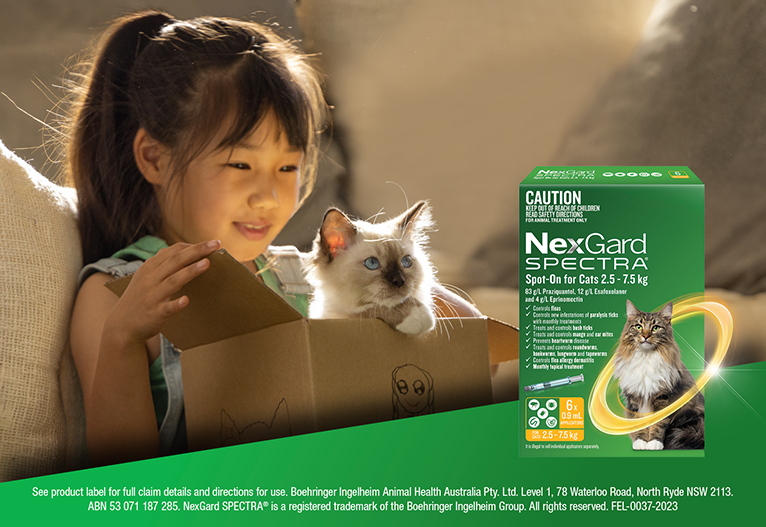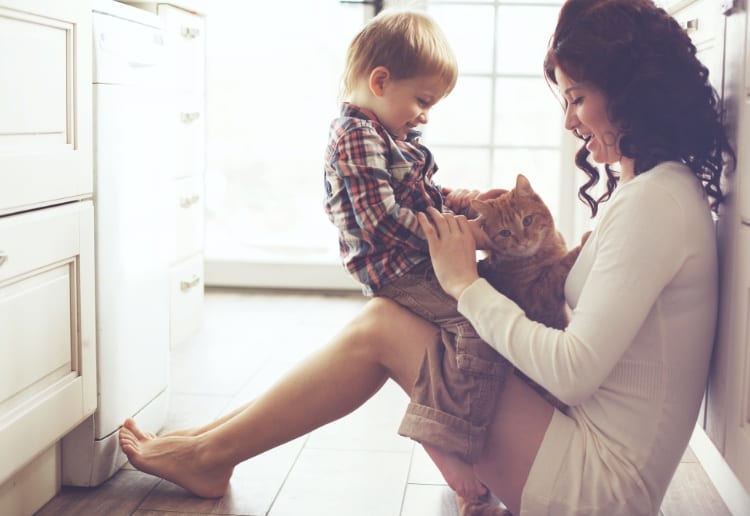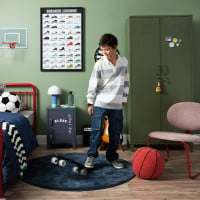There’s no better feeling than watching your child grow in the early stages of their development. You brought them into the world, and now you get to witness them learn new things. It’s an exciting time for you and your loved ones.
It’s essential to acknowledge how you can aid in your child’s development. Children start exploring the world using their innate abilities. However, your role as their parent is important – how involved you are in your child’s life can directly impact them.
Incorporating play into your child’s routine can dramatically enhance their development. It typically develops in stages from when your child is born until they’re 6 years old, and you get to go along for the ride. Here’s what to expect as they grow.
The Stages of Play and What They Mean
By understanding the stages of play in early childhood, you’re better equipped to handle a playtime routine and build activities corresponding to kids’ development.
Here are the six stages of play, outlined by Mildred Parten, a former researcher at the University of Minnesota’s Institute of Child Development. Children typically move on from one step to the next as they grow. By the time they reach age 6, much of their play is habitual, and they adopt a certain level of independence.
1. Solitary Play
Also known as unoccupied play, children in this stage begin to pick up toys and other objects nearby. Not much parent interaction is required, as it’s the earliest stage of exploratory play.
The main benefit of solitary play is that children learn to occupy themselves independently, which becomes useful later in life. This stage lasts from birth until around 2 years of age.
2. Parallel Play
Your child will engage in parallel play from 2.5-3.5 years old. This occurs when a child plays independently with their own toys next to other children who are also playing alone.
Although children may not be directly interacting with each other, this stage helps them learn how to play alongside others. Issues of sharing typically occur during this stage, so parental supervision is critical.
3. Associative Play
Once your child is 3.5-4 years old, they will begin engaging in associative play. At this stage, children start playing with each other and sharing toys.
Their social skills start developing around this age when they’re able to communicate with other children. Developing these abilities benefits children as they get to an age where they’ll be entering preschool soon.
4. Cooperative Play
Children reach the highest level of social play with their peers in the cooperative play stage, which occurs when they’re 4.5-5 years old. They take on roles during games and usually work together to achieve a common goal.
It’s at this stage that parents play a significant role in development. They can teach their children the value of compromise and cooperation during this type of play.
5. Games With Rules
After learning the importance of cooperative play, children between 5 and 6 years old can understand how rules are applied to games they play with others. There are typically winners and losers in these games. Children begin to learn that winning is fun, and losing may cause them to feel sad or angry.
Playing games by following rules is a structured and more rigid form of play. In this stage, you can set up games with guidelines for your children and teach them how to follow them.
6. Spectator/Onlooker Behavior
Simply put, the spectator or onlooker behavior occurs from birth and continues throughout all of the other stages. In this type of play, children will watch others play but typically make no effort to join. This is still a valuable type of play, as kids often will mirror the behavior they see.
Play requires parental involvement for children to learn and develop, and it also encourages them to use their imagination and be creative.
How Play Contributes to Growth
From early childhood, children rely on serve-and-return interactions for healthy growth. This includes any interaction with another human, whether it’s a hug or eye contact.
Serve-and-return interactions create neural connections in a child’s brain. Those connections build up over time and contribute to the development of their communication and social skills. Because of this, interacting with your child is paramount. Increasing the amount of interaction is a direct way to make a positive impact on your child.
If grandparents and other family members are around your child, consider having them play with them as well. There are benefits for both children and adults when they engage in quality playtime – older adults tend to feel joyous during the time they spend with their grandchildren, and children love the one-on-one attention.
There is no right or wrong way to play – all forms are encouraged and help your child learn the skills they need to grow.
Incorporate Play Into Your Routine
It may be challenging to get into a playful mindset for your child, but it’s crucial to their overall well-being. The benefits of engaging your child during each stage of play teach them skills they’ll need to succeed and move toward a life of independence.
Do you enjoy playing with your child? Tell us in the comments below.





















1:12 pm
7:59 am
9:04 pm
8:17 pm
2:21 pm
6:24 am
12:07 am
12:01 am
7:53 pm
5:36 pm
- «
- 1
- 2
Post a commentTo post a review/comment please join us or login so we can allocate your points.